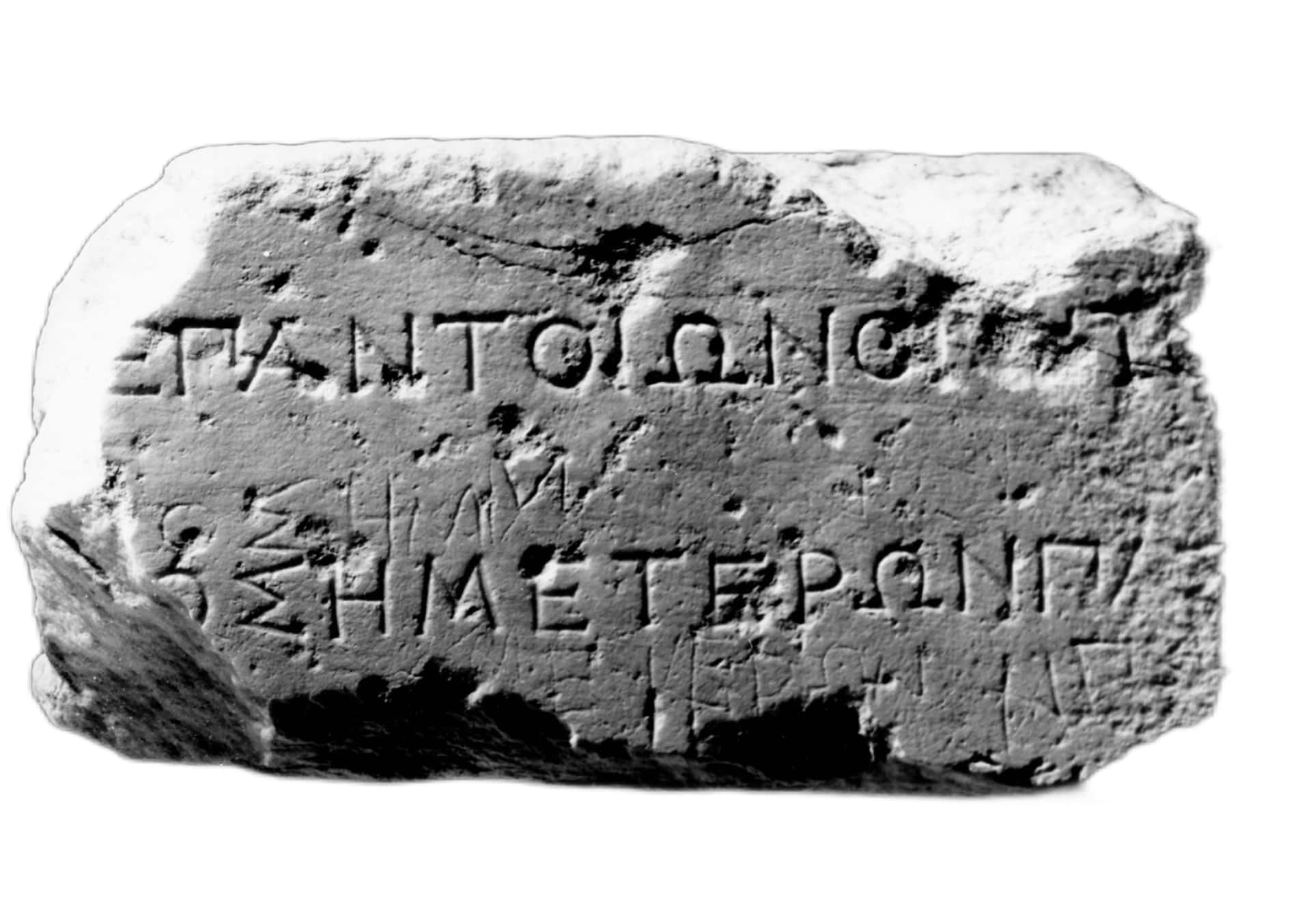Stone base with a funerary epitaph
The monument was found in the area of the temple of Olympian Zeus in Athens, where it had probably been moved to. It preserves part of a funerary epigram, dated to the 4th century BC.
The full text of the epigram was preserved in the Palatine Anthology (VII 245)*.
O Time, thou god who oversees everything for mortals,
be a messenger to all of our ardour.
How in trying to save the holy land of Greece,
we die on the glorious plains of the Boeotians.
In the poem of high artistic value, the dead invoke a divine power, the all-seeing daimon Time who oversees the whole of human life, that he makes known to everyone their fate, that is, their death while trying to save Greece. Time will preserve the glory of their loss for the future because they died defending the freedom of Greece.
The epigram has been associated by most scholars to the polyandrion erected to honour the approximately one thousand Athenians who fell at the battle of Chaeronea, whose ashes and bones Philip eventually allowed to be brought to Athens for burial.
* The letters in brackets are not preserved on the stone and are completed by the epigram from the Palatine Anthology.
